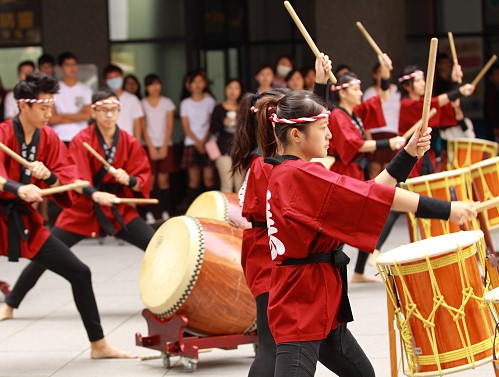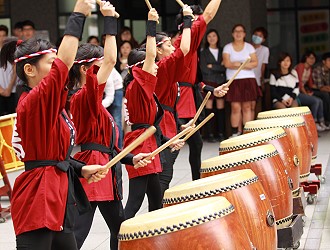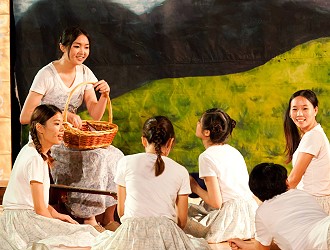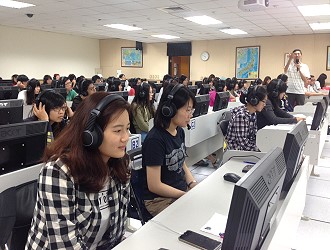About:Introduction
reads
| ABOUT | Introduction | ||||
The aim of the Department of Foreign Languages and Applied Linguistics is to train and cultivate students with professional English and Japanese language skills, along with cross-cultural understanding, communication competence, independent analytic and critical thinking skills, and spirits of teamwork and professionalism. Each course is specially designed with considerations of the current social pulse and industrial development to strengthen students’ competitiveness, allowing them to be the elite in the workplace, or professionals in language teaching or academic research. | |||||
| ABOUT | Features | ||||
▉ Language Skills The courses design aims at improving students’ English and Japanese language proficiency and emphasizes practical language application training. The Whole Language concept is used in English language training by combining listening, speaking, reading and writing skills in the courses. Aside from the normal courses, students are required to do extra-curricular reading by finishing 200 simple English books within two years and write 200 short essays regarding the books. On Japanese, freshmen will start from the basic Gojūon (Japanese alphabets) and later advance on that foundation. Junior and senior students are required to read 100 Japanese short essays or illustrations and write short essays. ▉ Specialized Courses The aim of specialized courses is to enrich students with professional linguistic quality, with courses such as fundamental linguistics, language teaching, culture, literature and so on. On language practicum, courses such as translation (including oral interpretation), language for specific purposes (LSP) (e.g.: Business English and Japanese; English for the workplace; journalistic English; tourism Japanese, etc.) are available for students to apply their knowledge and integrate with the industrial workplace. ▉ Writing Practicum To develop students’ ability to apply writing skills in practice, students are required to choose a topic for writing practicum as their graduation goal from the second semester of the third year until the first semester of the fourth year. The practicum should be completed with only English or Japanese, while each student will individually receive a year of training from an instructor, and present their work in a presentation or an exhibition. The contents of the practicum are divided as follows :
| |||||
| ABOUT | Future Development | ||||
▉ Further Studies and Graduate school: Students are encouraged to participate in exchange programs with sister universities in Europe, USA and Japan to broaden their cultural horizons and improve their English and Japanese language skills. The department also provides graduate school programs divided into English master’s program and Japanese in-service master’s program. Undergraduate students can also select the Yuan Ze University Five-Year BA-MA Program (Four years in undergraduate + one year of graduate studies) to obtain their master degree. They can also choose to further study other master’s programs in local or foreign relevant fields in English or Japanese (e.g., Business Management, International Trade, Tourism. etc.) ▉ Employment: Graduates from the department have a wide range of occupational paths. The main occupations include education (such as English or Japanese language teaching, multimedia language teaching material research and development)and service sectors (foreign, science and technological or airline companies, hotel management, tourism), and mass communication and professional language (written translation and oral interpretation, etc.) | |||||
| Educational Objectives & Featured Courses for MA Program ───────── |
In our English field we focus on English for Specific Purposes (ESP), which mainly concentrates on researching the practical application of languages in relating fields, including linguistics and literature discussions. We not only apply various theorieIn our English field we focus on English for Specific Purposes (ESP), which mainly concentrates on researching the practical application of languages in relating fields, including linguistics and literature discussions. We not only apply various theories to children's English education, translation, education, and creating classroom materials, but also expand on the research of ESP or culture in diverse field. In order to reach our featuring ESP research course, we not only to children's English education, translation, education, and creating classroom materials, but also expand on the research of ESP or culture in diverse field. In order to reach our featuring ESP=research course, we :
|
| Educational Objectives & Featured Courses for In-service Master Program ───────── |
The main focus of our In-service master program are Japanese society and culture, via the connection of language, we are able to discover the literature, culture, society, life in Japan, as well as the development and application of professional language, we aim to do in-depth. To reach the goal :
|



